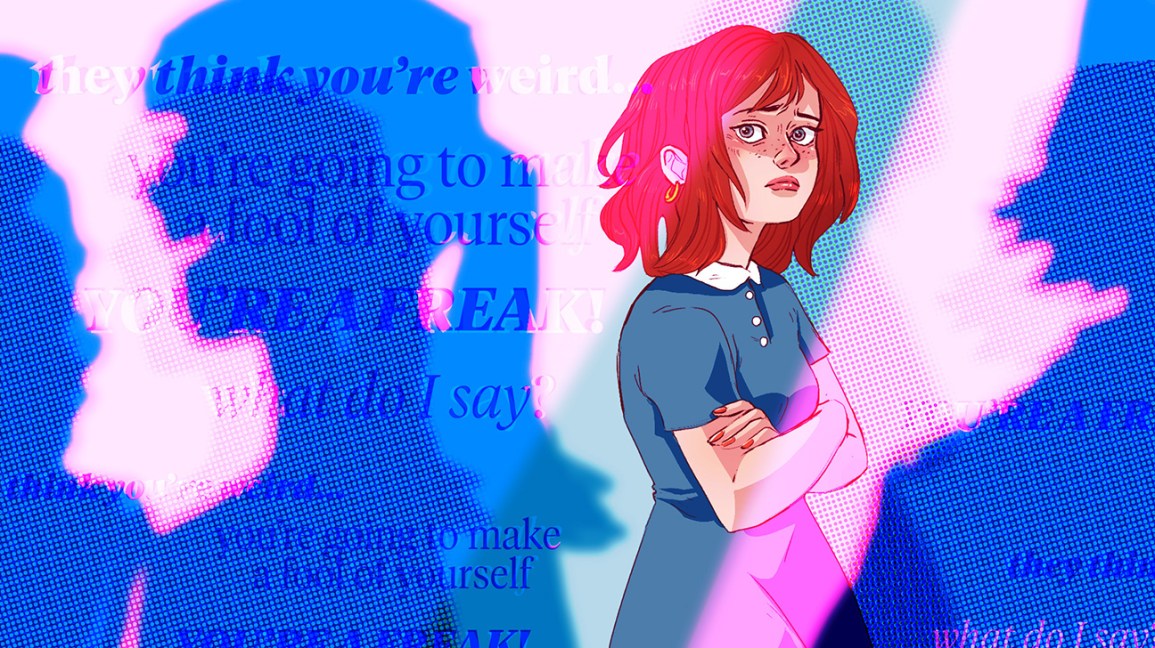Social Anxiety
Social Anxiety
Social anxiety disorder – also called Social phobia – is the term used when normal day to day activities cause considerable anxiety, fear, embarrassment and discomfort because the sufferer has a fear of being judged by others.
In Ayurveda classics, anxiety is described as a symptom Chittodwega (restlessness of mind). It is further classified under a heading of psychiatric disorders called ‘Unmada’.
As per Ayurveda, inappropriate dietary habits such as Adhvashana (Improper foods) and Vishamashana (Opposing foods) may cause Vishada (Mental lethargy) resulting out of Pragya-paradha (mistakes of the intellect/mind).
These mistakes are referred to as – lack of self-control over eating and greediness in food habits. Conditions of the mind such as Duhkha (Despair)– that is produced due to loss of beloved one or any financial or social loss; Bhaya (fear), Irshya (jealousy), Dainya (timidity), Lobha (greed), Chinta (worry), Krodha (anger) may lead to Vishada (Mental lethargy).
Imbalanced tridosha especially Vata vitiated rajas are the doshas mainly involved in development of clinical anxiety.

Causes Of Social Anxiety
As with other conditions related to mental health, social anxiety disorder is caused by a complex causes. These include:
- Inherited traits.Anxiety disorders tend to run in families.
- Brain structure. An overactive amygdala can increase the fear response An association between social anxiety disorder and strict upbringing is noted
Symptoms Of Social Anxiety
Symptoms of social anxiety disorder can lead to anxiety and avoidance of day to day routine activities.
These are categorized into emotional and physical symptoms. They are:
Emotional signs and symptoms of social anxiety disorder can include persistent:
- A fear of social gatherings
- Fear of strangers
- Fear of embarrassing self
- Avoidance of activities and talking to other people
Physical signs and symptoms can also present with social anxiety disorder and may include:
- Rapid heartbeats
- Stomach upset
- Breathlessness
- Loose watery diarrhea
- Tensed muscles
Ayurvedic Treatment For Social Anxiety
The concept of Yuktivyparshraya Chikitsa refers to Aahar, Aushadha and Dravya Yojana t counteract vitiated vata and rajas. Additionally a satvic lifestyle with meditation etc can help improve satva (Mind).
- Internal medicine
- Medhya Rasayan Chikitsa
- Manovatratay chikitsa
- Manas chikitsa
- Satvajaya chikitsa
- Samupdeshan chikitsa
- Panchkarma
- Shirodhara
- Shiropichu
- Abhyangam
- Utavartan
- Nasya
- Basti
- Snehan
- Swedan
- Yoga and pranayama
- Meditation
- Mental diet plan
- Counselling and psychotherapy guidance program
Diet Recommendations (Aahar)
- A wholesome healthy diet is essential for mental health and happiness.
- Use of madhur rasa (sweet taste), milk, ghee, and satvicfood etc influences the pravar satva (Higher mental equilibrium).
Diet Recommendations (Aahar)
Eating the right diet may also increase and help retain your memory’s capacity. Leafy greens and cruciferous vegetables like broccoli, cabbage, spinach and Swiss chard are recommended by some researchers, as are berries, plums, and cherry tomatoes. The Omega-3 fatty acids found in fish like salmon, herring, and anchovies are also thought to help memory retention.
Lifestyle Changes (Vihar)
- Regularly indulge in activities that challenge the brain. These could be simple exercises or memory games. Over time, these help improve memory.
- Regularly practice yogasanas. Some specific ones that help improve memory and concentration are:
Lifestyle Changes (Vihar)
Many yogasanas as exercise regimen are shown to be efficacious and helpful in reduction or management of stress.
Some asanas that are helpful are as follows –
- Suryanamaskara:It is a whole body exercise and is particularly helpful because it encourages you to breathe deeply and rhythmically.
- Bhujangasana (cobra pose): The Cobra pose tones the abdomen by stretching it. It also helps alleviate stress and fatigue and also improves blood circulation, thereby reducing anxiety.
- Shavasana : Savasana has a regenerative effect on the mind and the body. It provides relief from any kind of stress and strain in few minutes. It is a good activity for managing restlessness, insecurity, frustration, anxiety, and fear
- Bhramari Pranayama : Paroxysmal gamma waves produced in brain during the Bhramari Pranayama which is associated with positive thoughts, feelings of happiness and acts as a natural antidepressant.

